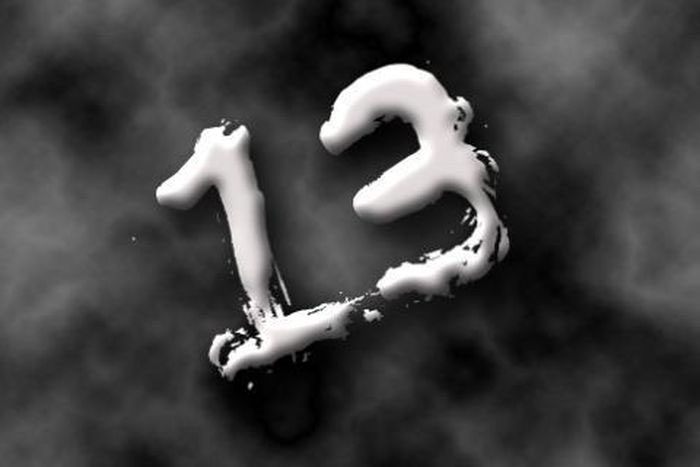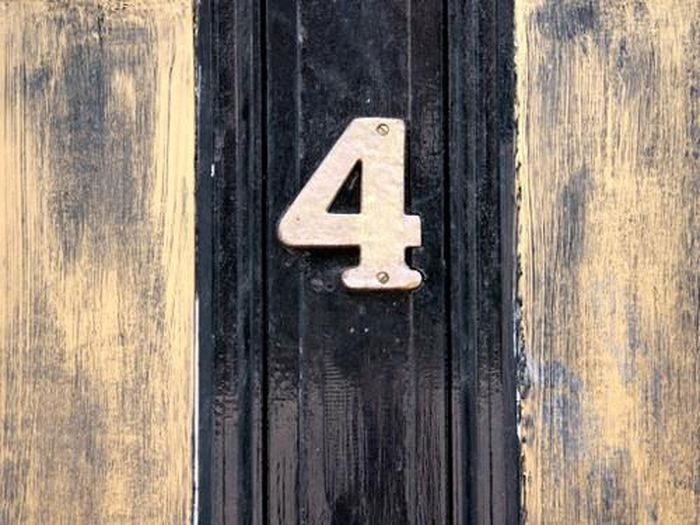The number 13 is often considered unlucky in the West, with houses and elevator floors commonly avoiding this number. In Asia, the number 4 is viewed as bringing misfortune.
The Fear of Number 13 in Western Culture
Many people in the West have a fear of the number 13, often fearing it more than Friday the 13th. Many choose to avoid this date for weddings, travel, or even work, leading to an economic loss of over $800 million annually.
In the United Kingdom, Canada, or Australia, it is nearly impossible to find a house with the address number 13. All German airlines omit the 13th row from their planes.
In American streets, buses numbered 13 are never seen, and there are never any 13th floors in buildings, nor rooms labeled with the number 13.
For this reason, many high-rise buildings constructed for rental or foreign business avoid building a 13th floor altogether, often labeling it as 12A or skipping straight to the 14th floor.

The number 13 follows the perfect number 12, making it feel strange and unusual.
According to the “Bible,” Jesus dined with His disciples before His death, and the 13th participant at the meal was Judas Iscariot, who betrayed Him. The Last Supper, with 13 attendees, coincided with the date of the 13th. This number brought suffering and misfortune to Jesus, leading to the association of 13 with bad luck and betrayal.
In Norse mythology, Loki, the god of fire, is the 13th god and is known for being malicious and cunning. He deceived and incited Hoder, the blind god of darkness, to kill his brother, Balder, the god of light, and became the 13th mourner at Balder’s funeral. Since then, a superstition has emerged in the West: if 13 people attend a funeral, one of them will die within the year. This is also one of the origins of the “triskaidekaphobia.”
Legend has it that there are 13 steps leading to the gallows. In reality, gallows come in various forms, but traditionally, there are 13 steps leading up to them. A park ranger at the Fort Smith Historic Site once stated, “There are literally 13 steps leading up to the gallows: 12 steps up and one step down.”
Furthermore, mathematicians and ancient scientists considered the number 12 to be “perfect.” The ancient Sumerians based their numerical system on 12, which remains in use today, with 12 months in a year and a 12-hour system; additionally, there are 12 zodiac signs and 12 principal gods of Olympus.
Since 12 is a perfect number, the number 13, which follows it, is perceived as strange and unusual.
Why Do Asians Avoid the Number 4?
Due to the influence of Chinese culture, the number 4 has long been considered unlucky, associated with bad fortune. Folklore suggests that this number is considered bad due to crowd psychology.
On the other hand, the number 4 is pronounced “Si” which sounds like “Sǐ,” meaning death, and is positioned in the cycle of “Birth – Old Age – Illness – Death” which instills fear in people. However, this is merely a superstition-driven fear. In reality, the number 4 or any number for that matter, is not inherently linked to fortune or misfortune; those concepts are human constructs.

The number 4 is pronounced “Si,” which sounds like “Sǐ,” leading to fear among individuals.
Currently, in Japan, hotels or apartments rarely have rooms or floors numbered with this digit. For instance, after room 203, the next might be 205, or after the 3rd floor, it might skip to the 5th. In hospitals, this avoidance is almost absolute, as the number 4 is associated with death.
Due to this mindset, many people avoid using license plates that contain the number 4. If they experience misfortune and see the number 4 anywhere, they will immediately attribute it to the presence of this number.
Fortune and misfortune are not dependent on numbers. However, coincidental occurrences have fostered a collective psychology of fear and avoidance among people.
The belief in the number 4 as unlucky also appears in many Asian countries such as South Korea, Malaysia, and Singapore. However, to date, no one has provided evidence that multiple instances of the number 4 lead to misfortune while other numbers do not.


















































